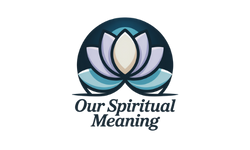In a world where wellness trends come and go, the concept of Herbal Detox stands as a bridge between ancient traditions and modern science. It’s not just about cleansing; it’s about honoring your body as a sacred ecosystem with its own innate intelligence.
Have you ever wondered how rituals like sipping Yogi teas or blending herbs align with your body’s natural rhythms? These practices aren’t just about purification—they’re about creating harmony between your physical and spiritual self.
This article dives into the conversation between time-honored wisdom and contemporary biology. We’ll explore how herbal blends can support your body’s natural processes without promising miracles. Let’s reflect on our relationship with purification rituals and uncover their deeper meaning.
Key Takeaways
- Herbal detox blends ancient wisdom with modern science.
- Your body has its own natural cleansing intelligence.
- Herbal blends are allies, not miracle solutions.
- Reflect on your relationship with purification rituals.
- Real-world examples like Yogi teas ground the discussion.
What Is Herbal Detox?
Herbal detox blends ancient traditions with modern wellness practices. It’s a temporary dietary intervention that uses the power of plants to support your body’s natural cleansing processes. Unlike harsh methods, this approach focuses on gentle, plant-based ingredients like milk thistle and burdock root.
Understanding the Concept of Herbal Detox
Herbal detox is rooted in centuries-old healing traditions. Practices like Traditional Chinese Medicine and Ayurveda have long used plants to promote balance and well-being. These methods emphasize working with nature’s timeline, rather than forcing quick results.
For example, many programs last between 3 to 14 days, allowing your body to adjust gradually. Brands like Herbal Clean® have modernized this concept, offering same-day cleanses for those seeking immediate support.
How Herbal Detox Differs from Other Detox Methods
Herbal detox stands apart from other methods like juice fasts or pharmaceutical approaches. While juice fasts can be restrictive, and pharmaceuticals often rely on synthetic compounds, herbal detox uses natural tea blends and plant synergies.
Preparing a cup of herbal tea can be a mindful ritual, encouraging you to slow down and connect with your body. This contrasts with the quick-fix mentality of some modern detox trends.
However, it’s worth questioning whether short-term programs align with your body’s circadian rhythms. True detoxification is a continuous process, and herbal detox should be seen as a supportive tool, not a standalone solution.
Common Ingredients in Herbal Detox Products
Nature offers a treasure trove of ingredients that support our body’s natural processes. From earthy roots to vibrant leaves, each plant brings its unique wisdom to the table. Let’s explore some of the most common components found in detox blends and how they contribute to overall well-being.
Burdock Root and Its Benefits
Burdock root is a staple in many detox formulas. Known for its earthy flavor, it’s celebrated as a blood purifier and skin ally. This root helps the body eliminate toxins while promoting healthy skin. Its gentle yet effective nature makes it a favorite in traditional remedies.
Milk Thistle: A Key Ingredient for Liver Health
Another star ingredient is milk thistle. This herb has a long history of supporting liver health. It works by protecting liver cells and aiding in the regeneration of damaged tissue. Think of it as a guardian for one of your body’s most vital organs.
Other Popular Herbs in Detox Blends
Beyond burdock root and milk thistle, detox blends often include herbs like dandelion and ginger. Dandelion leaves are known for their sunny disposition, supporting digestion and hydration. Ginger adds a warming touch, aiding in circulation and reducing inflammation.
However, it’s important to approach some ingredients with caution. Less-discussed components like senna or cascara sagrada can have strong effects and should be used sparingly. Always research and consult a professional before trying new blends.
How Herbal Detox Works

The rhythm of cleansing is deeply tied to the body’s natural cycles. Your liver, one of the hardest-working organs, plays a central role in this process. It filters toxins, processes nutrients, and keeps your system running smoothly. Understanding this can help you make informed choices about cleansing programs.
The Science Behind Herbal Detox
Your liver operates in two phases to purify your system. In Phase I, enzymes break down toxins into smaller compounds. Phase II converts these compounds into water-soluble substances for elimination. This process happens around the clock, with peak activity between 2-6 AM.
Modern life exposes us to more toxins than ever before. Herbal interventions aim to support these natural processes. For example, milk thistle can enhance liver function, while dandelion promotes kidney health. These herbs work in harmony with your body’s innate intelligence.
Duration and Frequency of Herbal Detox Programs
Cleansing programs vary in length, from same-day options like Herbal Clean® to 14-day plans. Shorter programs, such as 3-day cleanses, offer a quick reset. Longer programs, like 14-day ones, align more closely with your body’s natural rhythms.
It’s important to consider your lifestyle and goals when choosing a product. Forcing a cleanse can disrupt your system, while gentle support can enhance your natural detoxification. Always listen to your body and consult a professional if needed.
Do Herbal Detoxes Really Work?

When it comes to wellness, many wonder if certain practices truly deliver on their promises. The idea of cleansing has gained popularity, but does it stand up to scrutiny? Let’s explore the claims and realities behind these programs.
Examining the Claims of Toxin Removal
One of the most common claims is that these programs remove toxins from your body. However, there’s little clinical evidence to support this. The term “toxins” is often vague, reflecting modern anxiety rather than measurable biomarkers.
Studies show that urinalysis doesn’t detect significant changes after using detox products. Instead, these programs may serve more as rituals than physiological necessities. They can help you feel refreshed, but they don’t necessarily flush out harmful substances.
Herbal Detox and Weight Loss: What You Need to Know
Many people turn to these programs for quick weight loss. While you might see a drop on the scale, it’s often due to water and electrolyte loss, not fat reduction. NIH data reveals that 73% of users regain the weight within six months.
Rapid results can be psychologically appealing, but they don’t lead to lasting change. Gradual, sustainable habits are more effective for long-term health.
| Type of Weight Loss | Duration | Long-Term Impact |
|---|---|---|
| Water Weight | 48 hours | Temporary, often regained |
| Fat Loss | Weeks to months | Sustainable, long-lasting |
It’s also important to consider potential risks. For example, a 60-year-old woman died from liver failure after a 14-day tea program. Daily use of detox teas has also been linked to muscle wasting in some cases.
While these programs can be part of a wellness routine, they’re not a substitute for a balanced lifestyle. Always consult a professional before starting any new regimen.
Potential Risks of Herbal Detox

While many turn to natural solutions for wellness, not all are without risks. The promise of purity can sometimes overshadow the hidden dangers of unregulated products. Understanding these risks is crucial for making informed decisions about your health.
Unknown Ingredients and Their Dangers
Not all ingredients in natural products are safe or well-researched. Some blends contain red flag components like aloe latex, lobelia, or comfrey, which can harm your liver or other organs. For example, a 50-year-old suffered organ failure after a manganese overdose from an Epsom salt cleanse.
The USDA has taken action against unsafe detox products, but many still slip through the cracks. Always check labels and research ingredients before use.
Side Effects and Health Concerns
Even seemingly harmless herbs can cause side effects. Herbal diuretics, for instance, can drain your energy and disrupt electrolyte balance. Overuse of certain blends has been linked to muscle wasting and severe liver damage.
Short-term programs, like 3-7 days, may seem appealing but can strain your system. Long-term use of detox teas has also raised concerns about nutrient depletion and chronic health issues.
Who Should Avoid Herbal Detox?
Certain populations are particularly vulnerable. Those with compromised liver function, pregnant women, and the elderly should avoid these programs. Additionally, herb-drug interactions, like St. John’s Wort with antidepressants, can pose serious risks.
Even brands offering guarantees, like Herbal Clean’s 45-day promise, can’t eliminate these dangers. Always consult a healthcare professional before starting any new regimen.
Herbal Detox vs. Your Body’s Natural Detoxification System

Your body is a self-cleaning temple, designed to maintain balance and health naturally. It doesn’t need external interventions to function optimally. Instead, it relies on its own sophisticated systems to remove waste and toxins efficiently.
How Your Body Naturally Removes Toxins
The liver is the powerhouse of detoxification, performing over 500 biochemical functions daily. It filters toxins from the blood, processes nutrients, and converts waste into substances that can be eliminated. Alongside the liver, your kidneys, intestines, and skin work in harmony to cleanse your system.
Your kidneys filter blood and produce urine, while your intestines expel waste through bowel movements. Even your skin plays a role, releasing toxins through sweat. This natural process happens continuously, without the need for external aids.
In Ayurveda, the concept of agni (digestive fire) emphasizes the body’s innate ability to cleanse itself. A strong agni ensures efficient digestion and elimination, keeping your system balanced.
Why Herbal Detox May Not Be Necessary
For healthy individuals, external detox methods like herbal cleanses may be unnecessary. Research shows that the body is fully capable of removing toxins on its own. Forced detox can be compared to over-scrubbing a sacred statue—it may do more harm than good.
Studies also highlight the role of the microbiome in natural detox pathways. A healthy gut supports efficient waste removal, reducing the need for external interventions. Sauna therapy, for example, has been shown to aid toxin release through sweat, offering a gentler alternative to herbal diuresis.
In an age of environmental toxicity, the cultural obsession with purity can lead to unnecessary practices. Instead of focusing on external cleanses, consider supporting your body’s natural processes through a balanced lifestyle.
Alternatives to Herbal Detox
Sustainable wellness begins with simple, everyday choices. Instead of relying on extreme measures, you can support your body’s natural processes through mindful habits and nutrient-rich foods. These alternatives not only promote long-term health but also align with your body’s innate rhythms.
Healthy Lifestyle Choices for Natural Detox
Your body thrives when supported by consistent, healthy practices. Start with hydration—aim for at least 48 ounces of water daily. Pair this with regular exercise, which boosts circulation and aids in toxin removal. Sleep is another cornerstone; it allows your body to repair and rejuvenate.
Incorporate daily rituals like oil pulling or dry brushing. These practices not only support physical health but also create moments of mindfulness. Lymphatic massage is another gentle way to enhance your body’s natural detoxification pathways.
Nutrient-Dense Foods That Support Detoxification
What you eat plays a crucial role in maintaining balance. Focus on nutrient-dense options like cruciferous vegetables (broccoli, kale) and garlic. These foods are rich in antioxidants and support liver function. Adding ginger to your meals can also aid digestion and reduce inflammation.
Mindful eating is perhaps the ultimate detox practice. Slow down, savor each bite, and listen to your body’s signals. This approach fosters a deeper connection with your food and its nourishing effects.
| Method | Benefits | Long-Term Impact |
|---|---|---|
| Hydration | Supports kidney function | Sustainable, promotes overall health |
| Exercise | Boosts circulation | Enhances energy and vitality |
| Nutrient-Dense Foods | Supports liver health | Provides lasting nourishment |
Conclusion
Balancing ancient wisdom with modern health insights can transform your wellness journey. While Herbal Detox offers a bridge between tradition and science, it’s essential to approach it with both curiosity and caution. Your body is a dynamic system, and its needs are unique to you.
Empower yourself by consulting not only healthcare providers but also your inner wisdom. Reflect on what your body truly needs—whether it’s rest, nourishment, or gentle support. Journaling prompts like “What does my body feel today?” can help you tune into its signals.
Think of your body as a flowing river. It doesn’t need scrubbing; it thrives with care and attention. Honor its natural rhythms while respecting the role of plant allies in your wellness journey. True health is about balance, not extremes.
